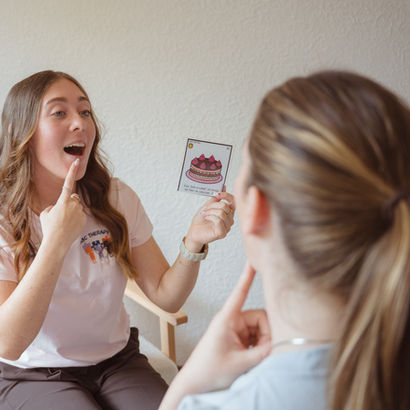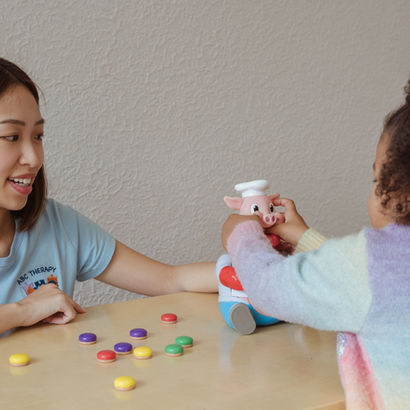As speech pathologists, we help individuals to understand others, be understood, express themselves, connect with others, and develop reading and writing skills across the lifespan. We also support those who stutter, use alternative communication methods, have difficulty swallowing (dysphagia), or want to improve or maintain their voice.
Individual Therapy

Expressing ideas and thoughts through spoken and written language
Fluency and stuttering - speaking smoothly and confidently
Swallowing (dysphagia) - supporting safe eating and drinking
Understanding others’ speech and language
Social awareness, communication and problem-solving skills
Voice - improving, maintaining, or rehabilitating the voice
Articulation - producing and combining sounds to form clear speech
Literacy skills - reading, writing, and spelling
Alternative communication (AAC) - using tools or devices to support communication when verbal speech is limited
Group Therapy
Programs
Group therapies are an excellent way for children to learn and consolidate skills in a fun, supportive environment.
We run a variety of neuro-affirming social skills, language, and literacy focused groups. For teens and adults, our group programs provide a welcoming space to practice and apply communication and social skills in real-life scenarios, while connecting with peers with similar goals.
During the school holidays, we run a variety of programs each break, giving families a fun and refreshing change of pace while keeping participants engaged and learning.

.png)











